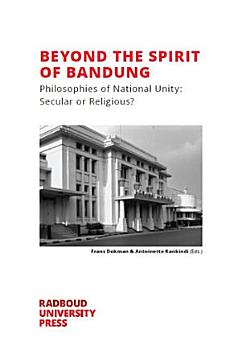Beyond the Spirit of Bandung: Philosophies of National Unity: Secular or Religious?
About this ebook
Much is required of a philosophy of national unity. It should connect and inspire citizens via shared ideals, provide a basis for equal citizenship, construct a national history and national identity, being the foundation for laws and institutions etc.. Nowadays, changed international relations have created a diversity of views on secular or religious philosophies of national unity. This development has only made the question of the role of religion in this post-secular era more pressing. In the context of the resurgence of religions, the Bandung conference marks the increasing relevance of the choice at the time for a secular or religious approach. In the African case of Tanzania, the Ujamaa philosophy was secular although Tanzania had a ‘civic religion’. In the Asian case of Indonesia, the philosophy of Pancasila was ‘religious pluralistic’ by recognizing six ‘official’ religions. In both this and other countries, the philosophies of national unity are now contested. Therefore, 68 years after the Bandung Conference, experts from Africa, Asia and Europe do critically answer the questions:
- What philosophy, secular or religious, succeeds or succeeded in promoting peace and stability?
- Are there comparable philosophies of national unity from other countries?
About the author
Frans Dokman is research affiliate of the Nijmegen Institute for Mission Studies, Radboud University.
Antoinette Kankindi is senior lecturer of ethics and social political foundations of law at Strathmore University, Kenya.






